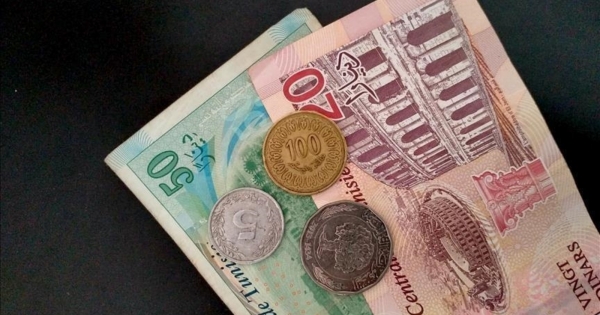The World Bank expected that “Tunisia’s slow recovery from the coronavirus pandemic and the delay in implementing major reforms, including the reform of the subsidy system, will lead to additional pressure on the country’s public finances and increase the budget and trade deficit.” balance.”
This is stated in the statement of the World Bank, published on its website after the release of the latest report of the “Economic Observatory of Tunisia”, issued by the Bank under the title “Anti-crisis management in a turbulent economic situation.”
The bank expects “economic growth to reach 2.7 percent in 2022, mainly due to the recovery of tourism and trade after the coronavirus pandemic, as well as strong performance in mining and light industry.”
He explained that “growth rates will be slightly lower than previous World Bank expectations, reflecting the impact of the war in Ukraine” and “economic performance in 2022 is expected to remain much lower than it was.” was before the pandemic.
On February 24, Russia launched a military attack on neighboring Ukraine that wreaked havoc on the food and fuel industries worldwide and prompted many capitals to impose economic, financial and diplomatic sanctions against Moscow.
“While the Tunisian economy has begun to recover from the corona crisis, the country is facing the dual challenge of high commodity prices and the war in Ukraine, which has placed enormous pressure on global wheat and energy supplies,” said Alexander Arrobio, Director of the World Office. bank in Tunisia.
He continued: “Recognizing these unprecedented challenges, the World Bank extended a $130 million loan to Tunisia in late June to help mitigate the impact of the war in Ukraine on the country’s food security. This will allow the government to finance grain purchases, starting with the implementation of the announced reforms.”
According to the bank, “the increase in the inflation rate from 6.7 percent in January 2022 to 8.1 percent in June 2022 prompted the Central Bank to raise the interest rate, the first increase since 2020.”
He added: “The trade deficit increased by 56 percent in the first half of 2022, reaching 8.1 percent of GDP.”
He expected the “fiscal deficit to widen with increased energy and food subsidies to reach 9.1 percent in 2022, up from 7.4 percent in 2021.”
The World Bank emphasized that “the system of food subsidies is one of the main reasons for the growth of the trade and budget deficit, as it puts a lot of pressure on the public finances of the state.”
Source: El Iktisad
